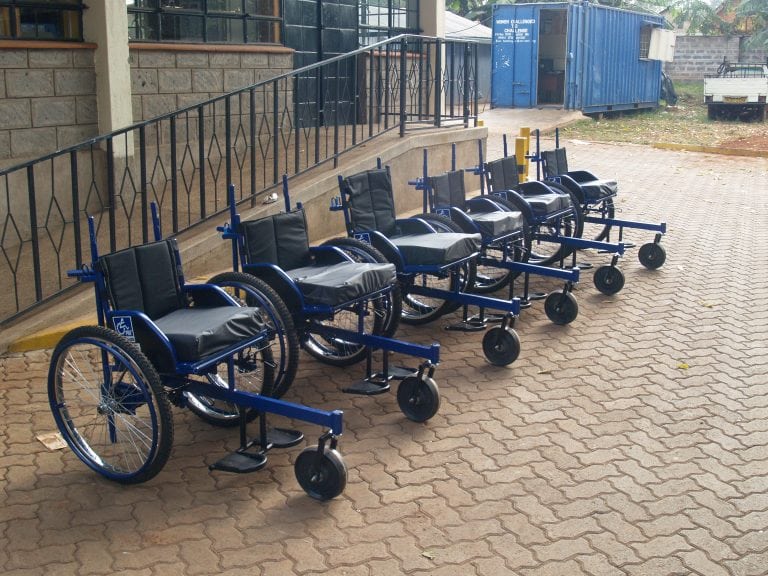I’ve been fortunate enough in my career to find time to explore a complex topic that’s one of my passions: the connection between engineering and social justice, and recognizing engineering as a social practice. Because this field is so vague and not thoroughly researched (yet), developing concrete ideas and action items to pursue it has been challenging. So, over the years I’ve accumulated a reading list, and I’m hoping these books will help elucidate the issue. For my own education and for you who are interested. I will continue to update this list in the future, so please recommend books and other reading materials that have helped you understand this field.
I’ve broken the issue down into topical areas and listed the books that explore each below.
Engineering/Technology
- The Social Shaping of Technology by Donald MacKenzie and Judy Wajcman: a collection of papers about how social context/structures passively but strongly influence technology development and implementation processes
- The Structure of Scientific Revolutions by Thomas Kuhn: a different view on scientific development (rather than the ‘normal science’ view) suggesting that ‘paradigm shifts’ cause progress
- To Engineer is Human: The Role of Failure in Successful Design by Henry Petroski: The title is a play on the phrase “to err is human,” and the book is about engineering design processes being based on trial and error and assumptions of the chaotic real world
- Science and the Social Order by Bernard Berber: about sociological functions and consequences of science from Greek rationalism to 21st century
- Mastering the Machine Revisited by Ian Smille: about developing technology that is catered towards the “needs” of people, and how this technology fits into the larger picture of aid and development, and poverty
- The Will to Improve by Tanya Murray Li: a detailed account of technology development for improving lands and living conditions in rural Indonesia. A great example of engineering design decisions having far-reaching and unexpected consequences
- America’s Moment: Create Opportunity in the Connected Age: various tech leaders talk about equal access to technology and also using technology to provide that access
- Real Utopia: Participatory Society for 21st Century by Chris Spannos: collection of papers depicting a world that is directly democratic and has institutions designed by people to solve complex sociological and economic questions Education
- How Children Succeed by Paul Tough: teaching strategies to help kids be creative, confident, optimistic, and successful
- Stones into Schools: Promoting Peace with Education in Afghanistan and Pakistan by Greg Mortenson: about his efforts to establish a girls school in these countries
- Savage Inequalities: Children in American Schools by Jonathan Kozol: how basic education is lacking in schools in low-resourced areas, and the effects of that on students and communities.
Economy
- The Elusive Quest for Growth: Economists’ Adventures and Misadventures in the Tropics by William Easterly: why economists’ attempts to help poorer countries improve their economic well-being have failed
- Development as Freedom by Amartya Sen: about three types of freedoms — political, opportunistic, and economic — and how the absence of either of these results in “poverty”
- The Rise of the Creative Class by Richmond Florida: how “creativity” is transforming work, education, economy and our lives Climate
- Natural Capitalism by Paul Hawken, Amory Lovins, and L.Hunter Lovins: arguing that the economy should be organized mainly around natural resources
- Boiling Point by Ross Gelbspan: how politicians, big oil and coal, and activists have fueled the climate crisis — and what we can do to avert the disaster
- Clean Tech Nation by Ron Pernick and Clint Wilder: a case on how America can lead the new global economy through green technologies
“Poverty”
- Evicted: Poverty and Profit in American Cities by Matthew Desmond: understanding poverty and economic exploitation in 21st century American cities
- Nickel and Dimed: About (Not) Getting By in America by Barbara Ehrenreich: about a sociologist who tries a bunch of minimum-wage jobs around the US, and documents her work and living experiences
- This Land is Their Land by Barbara Ehrenreich: essays about the deepening inequality and distrust between social classes in the US
- Give Work by Leila Janah: about understanding inequality and recognizing job creation as a solution of addressing poverty. Read my review here.
- A Framework for Understanding Poverty by Ruby K. Payne: a workbook with exercises to help conceptualize poverty and related issues/consequences
- World Poverty and Human Rights by Thomas Pogge: a philosophical argument that it is our duty to help the poor because we are a part of the system that puts some (including us) into disadvantages
- The End of Poverty by Jeffery D. Sachs: ideas to mitigate poverty issues in developing countries based on the author’s work in those areas
- The Working Poor: Invisible in America by David K. Shipler: how minimum wage workers are confined to their situations (a more political focus)
- Arrival City by Doug Saunders: how the largest migrations in history have shaped today’s world
Healthcare
- Mountains Beyond Mountains: The Quest of Dr. Paul Farmer, A Man Who Would Cure the World by Tracy Kidder: story of Paul Farmer and the start of Partners in Health, a non-profit providing addressing medical needs in some of the world’s most impoverished areas
- Pathologies of Power: Health, Human Rights, and the New War on the Poor by Paul Farmer: harrowing stories of life and death in extreme situations that show how social determinants of health are also examples of human rights violations
Feminism
- We Should All be Feminists by Chimamanda Ngozi Adichie: the title explains it
- I Know why the Caged Bird Sings by Maya Angelou: about experiencing racism and trauma, and emerging from it stronger and more capable
- Margaret Fuller by Megan Marshall: one of the most acclaimed biographies of Fuller
- Unleashing the Girl Effect by Adriana Crepso @ Designmatters: a volume documenting the challenge to design accessible, affordable, life-improving tools for girls in diverse cultures around the world
- The New Feminist Agenda by Chelsea Green: analyzing prior efforts in the feminist movement and recommending a strategy moving forward
History
- The Mother Tongue by Bill Bryson: history of the English language and how it got to what it is today
- Guns, Germs, and Steel: The Fates of Human Societies by Jared Diamond: how geographical and environmental factors helped certain civilizations succeed over others and led to shaping the modern world
- The City in History by Lewis Mumford: history of city planning and development from Mesopotamian Era to now
- The Origins of Scientific Thought by Giorgio de Santillana: Rise of scientific ideas from 600 B.C. to A.D. 500
- A People’s History of the United Sates by Howard Zinn: history told from the point of view of minorities, poor working class, and immigrants
- Voices of a People’s History of the United States by Howard Zinn: brings to life the extraordinary history of ordinary people who built the movements that made the United States what it is today
Happy Reading!
About the author
Ankita is a Design Release Engineer at General Motors. Previously, she was a researcher at the Berkeley Emergent Space Tensegrities Lab, working on NASA Ames’ Tensegrity Spine Robot. And before that, she was a Design Associate Intern for Autodesk Foundation. While in college, she also started Socially Engaged Engineers (see.berkeley.edu) and Acorn (acornlabs.org), a STEM Ed organization. Ankita wants to engineer products and systems that help people and she is interested in the intersection of engineering, design thinking, and social impact.


Hello Ankita,
Thank you for sharing a reading list on engineering and social justice with readers of the Engineering for Change website.
One useful addition would be a category on Engineering Education, which has increasingly engaged the role of social justice in engineering education, via books such as these:
Riley, Donna (2008). Engineering and Social Justice. San Rafael, CA: Morgan and Claypool.
Ballie, Carolone (2009). Engineering and Society: Working towards Social Justice. Part I, Engineering and society. San Rafael, CA: Morgan and Claypool.
Baillie, Caroline, Pawley, Alice L., and Riley, Donna. (2012). Engineering and Social Justice: In the University and Beyond. West Lafayette, IN: Purdue University Press.
Lucena, Juan C. (2013). Engineering Education for Social Justice: Critical Explorations and Opportunities. New York: Springer.
Leydens, Jon A. and Lucena, Juan C. (2018). Engineering Justice: Transforming Engineering Education and Practice. Hoboken, NJ: Wiley/IEEE Press.
Hope this is helpful to readers of E4C. Best regards,
Jon
Hi Jon, thanks for the recommendations! Iyour feedback about incorporating “Engineering Education” in this list is noted. It is a critical topic because I also whole-heartedly agree social justice needs to become mainstream in eng education! Unfortunately, I cannot edit this entry to add your SUGGESTIONS; However I have shared this post on my medium page (https://medium.com/@ankitajoshi) and i will add your SUGGESTIONS there. also, I have read “Engineering and Social Justice” By donna Riley and it is one of my favorite reads in this domain! please keep sharing more resources and id love to chat more!